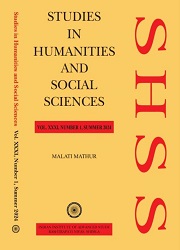Captives of the Empire
Civilising Torture in A Passage to India and No Longer at Ease
Keywords:
Civilised, White, Empire, Colonialism, Superiority, InferiorityAbstract
In the present era, most of the third world countries bear the bitter experience of colonialism. The colonial history constitutes of painful feelings and memories of the original inhabitants, in that the ‘Empire’ symbolizes the tyranny of the most traumatic and horrifying relationships in human history. The white colonizers in their search for new land started the process of forming a new refined world in the early seventeenth century. In order to find out the real motives of the western colonizers, two authors are taken for the study, one from the colonizers’ point of view and another from the colonized, to provide a comprehensive outlook to the work. Underneath the civilizing mission, the British had an inherent interest to get the maximum benefit from their nefarious trade. Further, the myth of superiority and inferiority was propagated through the white’s domination over Asian and African people by the conquests and settlement of its Empire. The two novels A Passage to India by E M Forster and No Longer at Ease by Chinua Achebe will try to address the issue by bringing the self-assertive voices of the inferior ‘Other’. Imperialism, colonialism, and post-colonialism are the most frequently used terms during 21st-century literature. This paper shall examine how the process of forming a refined and civilized community was the need of the hour for the white colonizers. We know that colonialism has been a source of power which became the modus operandi in the hands of colonizing European people. All the colonizers were well educated, white, beautiful, civilized, masculine, and Christian. On the other hand, the natives of the colonized countries were ugly, black, savage, lustful, uneducated, feminine, and pagan. These two texts will be analyzed to find out the potential in destabilizing and challenging the colonial power in eradicating the hangover and myth of superior Englishmen as postcolonial mentality.


